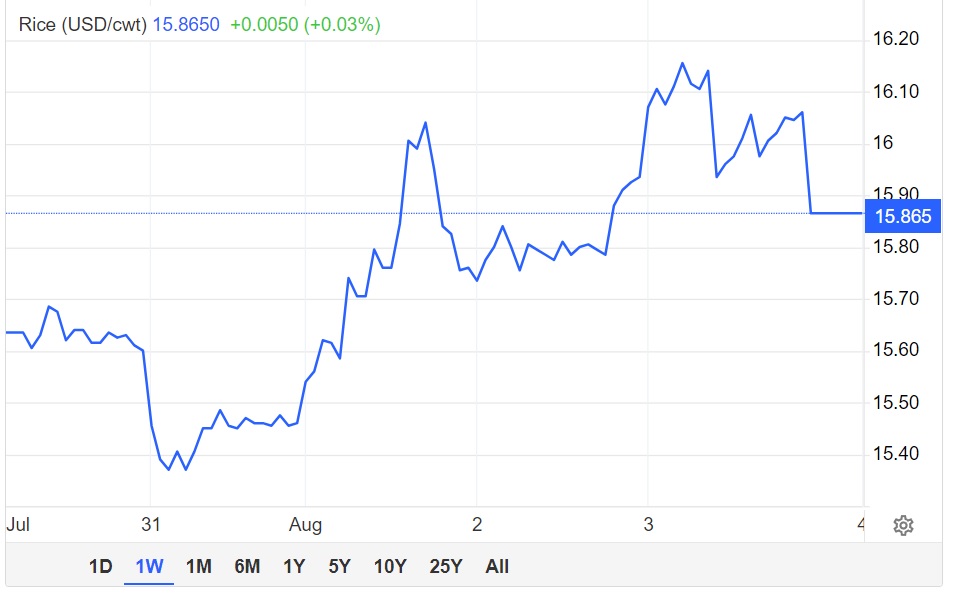Can typhoons lead to food insecurity in China?

The two typhoons Dosuri and Khanun, which hit northern China, especially the Beijing area and Hebei, caused enormous damage to the city's infrastructure, with truly apocalyptic scenes
Torrential rains brought by two consecutive typhoons have heightened food security concerns in China, already under pressure from export bans imposed by countries such asIndia and the destruction of large shipments of grain in Ukraine, which have pushed up global prices, prompting officials and researchers to warn of a "serious impact" on agricultural production.
“ The rains have caused flooding in parts of northern China, but will have limited influence on overall production ,” said Ma Wenfeng, an analyst at Beijing Orient Agribusiness Consultant.
The Ministry of Agriculture and Rural Affairs, Beijing has allocated 432 million yuan (60.1 million dollars) in financial aid for agricultural producers, but these are ridiculous figures given the extent of the damage to the agricultural system. There is still "great uncertainty" about the short-term impact, while disaster mitigation will be "extremely difficult and demanding," the ministry added.
Heavy rains brought by Typhoon Khanun and Typhoon Doksuri are expected to have a "major impact" on China's agricultural production as they continue to hit the rice-producing northeastern region as the market becomes increasingly volatile.

Prices are still far from those of 2022, but there is still some concern. China has large reserves and stable domestic production, but panic buying in North America could spread to Beijing, said Liu Yan, a senior analyst at cngrain.com , an agricultural information provider which counts among its shareholders the State-owned China Grain Reserves Corporation.
“With many countries banning rice exports, global rice prices are likely to rise further,” Liu said, adding to expectations of lower harvests. “Often it is not only supply and demand that affects the market, but also trader sentiment” “Also, the rice planting area has decreased due to structural adjustments, so there may be a moderate decrease this year of rice production compared to last year,” added Liu.
Agriculture departments across China have ordered farmers to grow more soybeans as Beijing has sought to reduce its reliance on imports in recent years following rising geopolitical tensions and war in Ukraine. this has decreased the acreage for rice and wheat. Furthermore, this policy has not been applied in a bland way, but rigidly, reaching the point of eradicating the prohibited crops. Therefore, to reduce imported soybeans, currently 80% of the total, less rice and wheat were grown. Sadly this has been happening as India cuts rice exports, Russia bombs Ukrainian wheat, and typhoons hit Chinese agricultural areas.
Four million hectares have been affected by floods this year. Authorities have response plans, but rural workers are lacking. When there is no harvest these workers move from agricultural regions to large cities to work in factories for better wages. Therefore, recovery operations are also complicated, and all this comes up against more complicated international conditions. Let us therefore expect a period of strong instability on international markets, but let us hope that the countries not affected by the crisis have sufficient agricultural resources, otherwise we risk seeing an explosion in agricultural prices in Europe as well.

Thanks to our Telegram channel you can stay updated on the publication of new articles from Economic Scenarios.
The article Can Typhoons Lead to Food Insecurity in China? comes from Economic Scenarios .
This is a machine translation of a post published on Scenari Economici at the URL https://scenarieconomici.it/i-tifoni-possono-portare-allinsicurezza-alimentare-in-cina/ on Fri, 04 Aug 2023 08:00:34 +0000.
